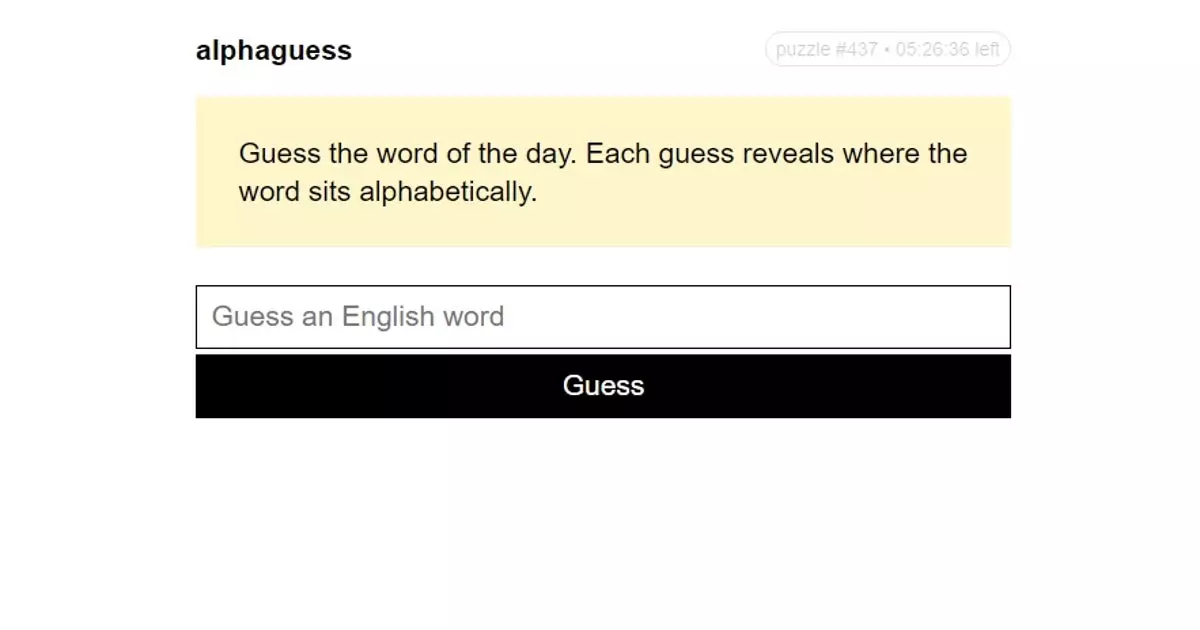In an era where productivity is paramount, it’s fascinating how simple distractions have emerged to captivate us. One such distraction is Alphaguess, a web-based puzzle game that presents a daily lexical challenge. The game’s mechanics are straightforward: players guess a word and receive feedback about its position in the alphabet relative to their guesses. While it may seem trivial at first glance, the allure of such games signals deeper psychological phenomena at play, drawing players into a world of guessing and estimation that can both engage and derail their focus.
My personal experience with Alphaguess reveals the dichotomy between entertainment and frustration. Attempting to guess today’s word took me an exasperating 26 tries and eight minutes. Surprisingly, it’s this very struggle — the act of sifting through possibilities — that keeps players returning for more. Initially, I opted for the word “muddle.” The rationale was simple: a mid-alphabet word might effectively narrow the choices. However, as I progressed through incorrect guesses, oscillating between success and failure, I became mired in confusion. This game is far from the intricate think pieces of chess or Sudoku; it’s stripped down to fundamental guessing, yet the mental gymnastics it instigates can be captivating.
Labeling Alphaguess strictly as a puzzle game might be reductive. While true puzzles often require strategic lateral thinking or a broader contextual understanding, Alphaguess thrives on its simplicity. It resembles a childhood guessing game where a friend invites you to guess a number between one and a thousand. This brings us to the infusion of fun — it leverages nostalgia while creating an environment that feels familiar yet challenging. The outcomes are predetermined, your path seemingly illuminated, yet the grand uncertainty of the alphabet ensures that the stakes feel real, if not slightly whimsical.
The cultural integration of digital games like Alphaguess exemplifies the oblique relationship we maintain with productivity. Many people gravitate towards these distractions not just as a means of escape but as a form of gentle mental exercise. These games stimulate the brain, offering a break from the rigor of daily tasks while inviting participants to engage in a playful linguistic exploration. While productivity may take a slight hit during these episodes, the break they provide can ultimately lead to improved focus and creativity.
It’s intriguing to consider how distractions like Alphaguess, while seemingly innocuous, play a vital role in our lives. They remind us of the delicate balance between work and play. As we navigate the demands of productivity in a fast-paced world, perhaps there’s value in allowing ourselves these moments of diversion. After all, embracing the occasional indulgence of a simple browser game might be the very antidote needed to rejuvenate our mental faculties for more significant challenges ahead. Credit must also be given to influent sources, such as newsletters that bring these engaging games to our attention, urging us to pause, play, and, ultimately, rethink our relationship with both work and leisure.


Leave a Reply
You must be logged in to post a comment.